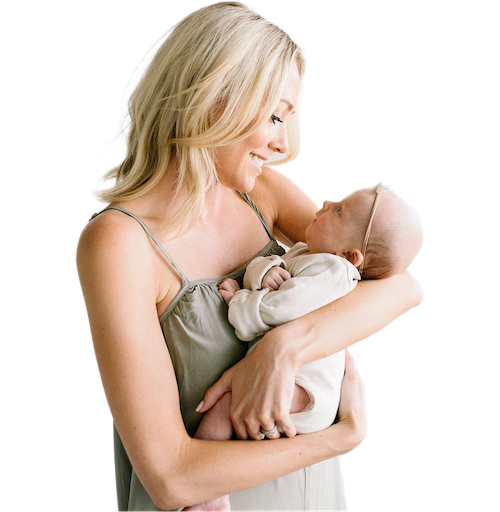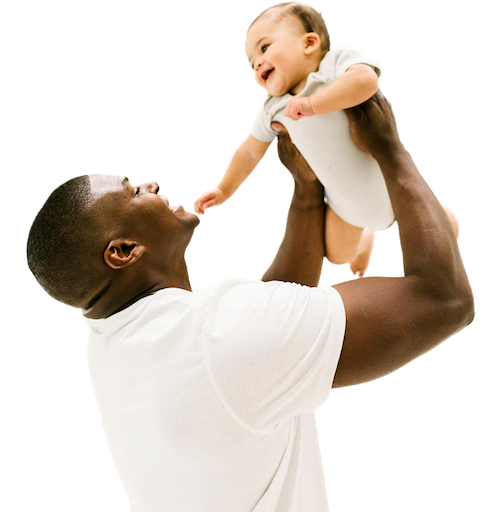It’s so exciting to watch your thirteen month old grow! Their personality is really showing, and they’re becoming more and more mobile. I’d love to share the most common questions I get about 13 month old sleep, including schedules, naps, regressions, and more!

The 5–24 Month Collection
stars ( reviews)
If sleep is a struggle for your 13 month old, I can help. My 5-24 Month Collection will give you all the tools you need to conquer nights and naps while remaining emotionally connected. I’ll teach you a customizable, step-by-step plan that will meet your baby right where they are developmentally and give you confidence to handle any bumps along the way.
Learn MoreWhat are the wake windows for a 13 month old? anchor
For a 13 month old, wake windows are between 3-4 hours. Wake windows generally start on the shorter end of the range in the morning and increase as the day goes on.
To set up a daily routine for your 13 month old, here’s a guide:
About 3 hours after Wake Time = Nap 1
About 3-3.5 hours after the end of Nap 1 = Nap 2
About 3.5-4 hours after the end of Nap 2 = Bedtime
13 Month Sleep Schedule Guidelinesanchor
Every baby is unique and your little one’s day will depend on when your baby wakes, how long your baby naps, and individual cues. These age-appropriate guidelines are not intended to be a rigid schedule, simply a guide for setting up a flexible routine.

Text version of 13 month sleep guidelines table
| Daytime Feedings: | 3 meals, snacks as needed |
|---|---|
| Goal Daytime Sleep: | 2.5-3 hours |
| Sweet Spot Bedtime | 7:00-8:00 pm |
| Number of Naps: | 2 |
| Wake Windows: | 3-4 hours |
For more details on these recommendations, keep reading.
What is a sample sleep schedule for a 13 month old?anchor
The day to day schedule for your 13 month old will vary slightly day to day. Those shifts in their schedule will depend on wake windows, morning wake time, and naps. Here are examples — one with 2 naps and one with 1 nap — of how a day might play out for a 13 month old

Text version of 13 Month Old Sample Schedule on 2 Naps table
| Time | Activity |
|---|---|
| 6:45 am | Wake |
| 7:00 am | Breakfast (solids) |
| 9:15 am | Snack/Nursing (optional) |
| 9:50-11:10 am | Nap 1 |
| 11:30 am | Lunch (solids) |
| 2:00 pm | Snack/Nursing (optional) |
| 2:40-4:00 pm | Nap 2 |
| 4:00 pm | Snack/Nursing (optional) |
| 5:45 pm | Dinner (solids) |
| 7:20 pm | Bedtime Snack/Nursing (optional) |
| 7:50 pm | Bedtime |
Here is a sample 13 month old sleep schedule for a baby who has transitioned to one nap. This is just a guide for what a day may look like based on appropriate wake windows but can vary depending on nap lengths and individual caloric needs.

Text version of 13 Month Old Sample Schedule on 1 Nap table
| Time | Activity |
|---|---|
| 7:00 am | Wake |
| 7:30 am | Breakfast (solids) |
| 9:30 am | Snack/Nursing (optional) |
| 11:30 am | Lunch (solids) |
| 12:00-3:00 pm | Nap |
| 3:30 pm | Snack/Nursing (optional) |
| 6:00 pm | Dinner (solids) |
| 7:00 pm | Bedtime |
How many naps should a 13 month old take?anchor
Most babies this age need two naps a day. At 13 months, our goal for daytime sleep is 2.5-3 hours total. On a two-nap schedule, the goal is to have each nap last at least one hour, but no longer than two hours. This allows for restorative sleep during the day, keeps bedtime between the sweet spot of 7:00-8:00 pm, and provides enough active awake time to be tired for naps and night sleep.
If your 13 month old is refusing naps or struggling to sleep, transitioning to one nap is rarely my first answer. However, for some babies, it can be time. Check out the signs below to help you decide what’s right for your baby.
A Note for Daycare Parents: I understand that you may not have control over when your baby transitions to one nap at daycare. Please trust that whenever that transition happens, your baby’s daycare can handle it! If your baby is taking two naps on non-daycare days and those naps are going well, there’s no reason to drop a nap at home. If daycare naps are causing stress, my blog Daycare and Baby Sleep will help.
Is 13 months too early for one nap?anchor
For most babies, yes. Parents of 13 month olds often ask if I think their baby is ready to move to one nap. “He stopped napping in the morning the past 2 days!” “She refused her afternoon nap on Monday and again on Thursday!” I know that this can be frustrating. Typically, a couple of “off” days or nights doesn’t mean a change is needed.
I recommend trying to maintain two naps for your 13 month old until they are clearly showing consistent signs that they are ready to transition to one nap. In order to transition to one restorative nap, your little one needs to be able to handle much longer wake windows than they did on two naps (Think 5-6 hours before the nap and 4-5 hours after the nap.). Most 13 month olds just aren’t able to stay awake that long without being overtired at naptime and bedtime. Often, when we make the transition too early we see other sleep issues appear, like short naps, night wakings, and early morning wakings. Waiting until your baby is truly ready will make it a much smoother transition.
If you think it may be time to transition to one nap, we want to see these signs that it’s time to drop a nap for at least one week, ideally two, before making any changes to their routine. Here are the signs that your 13 month old may be ready to transition to one nap:
Protesting or refusing a nap
Taking short naps when this wasn’t previously an issue
Waking before 6:00 am daily or almost daily
Falling asleep is taking longer than 20 minutes at naptime and/or bedtime
When your baby is ready, my blog How to Transition from 2 Naps to 1 will help you make that transition and guide you through the process of dropping to one nap.
Why is my 13 month old refusing naps?anchor
Babies this age are making (or preparing to make) big developmental, physical, and cognitive strides. Their bodies and brains are working hard and this has the potential to disrupt sleep. Here are some reasons that your 13 month old may be refusing naps, taking longer to fall asleep for naps, taking short naps, or waking more often during naps.
Your baby is going through a developmental progression: All babies develop differently and some babies may experience a progression in development at 13 months that impacts sleep. We often call these sleep regressions.
Your baby’s wake windows need to be lengthened: As babies get older, their wake windows often need to be lengthened slightly. If your baby is on the lower end of the age-appropriate range, gradually add a bit more time to each wake window. Going slowly will help you find the right range for your baby without them becoming overtired.
Your baby is overtired: When babies are overtired, it can be hard for them to fall asleep and stay asleep. If you’ve recently moved to one nap or increased the length of wake windows and suddenly your 13 month old is refusing naps, try shortening their wake windows slightly.
Your baby’s body needs more active awake time: Consider adding in more activity during your baby’s awake time. Have a dance party, create an obstacle course out of the couch pillows, or have your baby crawl or walk a little more to get out that energy. Being intentional about active awake time helps your baby be tired enough to take a consolidated nap.
Your baby needs time to wind down: A naptime routine cues your baby’s brain and body to know that sleep is coming. This time to wind down truly helps prepare for sleep. What is a naptime routine? Just a few predictable activities you do with your baby to help them transition from awake time to sleep. Think: diaper change in the nursery, snuggle with a book, sound machine, lights off.
If you are consistent with these changes for 1-2 weeks but don’t see any improvement in sleep, then it may be time to make the transition from 2 naps to 1.
If naps have always been tough for your 13 month old, my Conquering Naps class can help. I’ll walk you step-by-step through a fully-customizable approach to better naps, less stressful days, and more.
What time should a 13 month old go to bed?anchor
The sweet spot bedtime for 13 month old babies tends to be between 7:00-8:00 pm. This is the time that typically helps babies fall asleep and stay asleep during the night. I understand that for some families, bedtime needs to be outside of this range. If your 13 month old’s bedtime is before 7:00 pm or after 8:00 pm and sleep is going well, you don’t need to worry about making a change.
If your 13 month old has a bedtime later than 8:00 pm and is struggling to fall asleep at bedtime, having false start bedtimes, waking in the middle of the night, or having early morning wakings, try moving bedtime a little earlier for a couple of weeks to see if it helps.
An earlier bedtime (Think 6:00-6:30 pm.) can be helpful when daytime sleep didn’t go as planned. You may need to move bedtime earlier than 7:00 pm if you had a day when:
Daytime sleep was less than 2-2.5 hours total.
A nap was short or refused.
Your 13 month old has been awake at least 3.5 hours and is really struggling to make it to bedtime, especially if they've recently transitioned to one nap or are sick.
For more tips about setting your little one up for success at bedtime, see the blog Creating a Bedtime Routine.
What is a sample 13 month old feeding schedule? anchor
After your baby’s first birthday, solids become their primary source of nutrition. When it comes to a 13 month old feeding schedule, you’ll want to offer 3 meals a day and snacks as needed. If your 13 month old is nursing, they may prefer a nursing session instead of snack, but nursing sessions can fit into these sample schedules according to your baby’s needs. You can see how those feedings could play out in the examples above.
Of course, just like adults, your child’s appetite can vary from day to day, but following a predictable routine of when you offer meals and snacks is helpful for staying ahead of your little one’s hunger, and we know that being hungry can make everything harder (cue tantrums!).
Be sure to speak with your pediatrician about any concerns you have regarding how much your one year old is eating.
How much milk should a 13 month old drink? anchor
According to the American Academy of Pediatrics, babies who are 13 months old should drink about 16 ounces of whole milk per day. Serving milk with meals or a snack allows your baby to be hungry enough to eat other foods with needed nutrients instead of filling up on milk alone.
If you’re wondering HOW to do this, let me talk you through the transition from formula or breastmilk to whole milk and also from the bottle to the sippy cup.
For nursing mamas, if breastfeeding continues to work for you and your baby, there is no pressure to wean and transition to whole milk just because of your baby’s age. Continue your nursing journey for as long as your family desires.
For some babies and families, cow's milk is not the best option. If you have questions about milk alternatives and ensuring your baby gets the nutrition they need for healthy growth and development, please speak with your pediatrician.
What are the best sippy cups for 13 month old babies?anchor
Similar to finding a pacifier or bottle that works best for your baby, finding the best sippy cup may take a few tries. While some babies love straw cups, others prefer open cups. If your baby has always used the same cup for water and is hesitant to drink milk from that cup, this is normal! Try switching to a different color or a completely different style cup.
Keep in mind, it’s best to avoid cups with hard spouts. Here are some of the best sippy cups for 13 month old babies:
This is a perfect age to practice using a sippy cup. If you need more help, check out these options for transitioning from a bottle to a sippy cup.
What are some 13 month old milestones?anchor
Your 13 month old baby may:
Cruise along furniture or walk independently
Drink from an open cup without help
Say 1-2 recognizable words
Turn a few pages in a book
Help with some dressing (like pushing arm through a sleeve or pulling off socks)
Hold a crayon and scribble
Drop or throw toys, especially from their highchair
Please know these milestones are based on age ranges, and every baby develops at their own pace. Check with your pediatrician if you have any questions or concerns about your baby’s development.
What are some activities for my 13 month old? anchor
Here are some easy ways to engage with your 13 month old:
Get outside! If it’s possible, take your 13 month old to a park for some swinging and exploring.
Encourage language development through reading and singing to your baby. Lift-a-Flap books are fun for your curious baby!
Blow bubbles! This is a great way to entertain your 13 month old (and yourself!).
Engage your baby’s senses with some sensory play. Wrap some objects (think toy animals or small blocks) in tissue paper and let your baby unwrap them. It’s a 2-for-1! They can play with the object inside or may find the paper even more exciting!
I have some favorite toys for thirteen month olds here.
Is there a sleep regression at 13 months?anchor
It’s possible! Babies can show signs of sleep regressions for many different reasons. We typically see a 12 month sleep regression, but because every baby develops at their own pace, it’s possible your 13 month old may experience sudden changes in sleep. Your 13 month old suddenly not sleeping could also be due to your baby:
Being ready to transition to one nap.
Experiencing a peak in separation anxiety.
Learning new skills.
Expert Tip: Being consistent with your approach to sleep helps minimize disrupted sleep during sleep regressions.
Why is my 13 month old waking up at night? anchor
If your 13 month old's night wakings are a sudden change, please make sure they are not experiencing physical discomfort, like illness or teething. If you know your baby is healthy, here are other common culprits for a 13 month old struggling with sleep:
Your baby is learning a new skill, like taking a couple steps or saying a new word.
Their sleep environment needs adjusting. Let’s make sure that they are dressed comfortably for sleep. I love using a sound machine (use code CARA20 for 20%) and making sure that the room is really dark (use code Cara for 10% off) to help reduce any stimulating light or noise.
They need wake windows to stretch a bit longer. Your baby may not have had enough active awake time to stay asleep all night.
They dropped a nap too early. Overtired babies often wake up during the night. If possible, try to maintain two naps for your 13 month old baby.
They need a little less daytime sleep. I recommend no more than 3 hours of daytime sleep at 13 months old.
If your baby has always struggled with waking up at night, my 5-24 Month Collection is a customizable, holistic plan to help your baby achieve 10-12 hours of consolidated sleep each night.
Can I sleep train my 13 month old baby?anchor
Yes, you can. It’s never too late to have a good sleeper. If you’re ready to sleep train and work on great sleep, so is your 13 month old! The 5–24 Month Collection is a holistic plan that is fully-customizable to meet your family’s goals. It will allow you to remain emotionally connected to your baby while following a step-by-step plan to achieve consolidated nights, set up solid naps, and manage all the bumps along the way.
Still have a 12 month old? Check out 12 month sleep schedules. Already have a 14 month old? I've got you covered with my 14 month old sleep schedules.
References
5 Sources
Healthy Children, American Academy of Pediatrics. (2023). Recommended Drinks for Children Age 5 & Younger
Mindell et. al. (2008). Developmental aspects of sleep hygiene: Findings from the 2004 National Sleep Foundation Sleep in America Poll
Mindell and Williamson. (2017). Benefits of a bedtime routine in young children: Sleep, development, and beyond
Paruthi et. al. (2016). Recommended Amount of Sleep for Pediatric Populations: A Consensus Statement of the American Academy of Sleep Medicine
Tham, Schneider, and Broekman. (2017). Infant sleep and its relation with cognition and growth: a narrative review
Keep in mind that the information and content on this blog is for informational purposes and should not be considered medical advice. If you have questions about your child, please reach out to your doctor.








